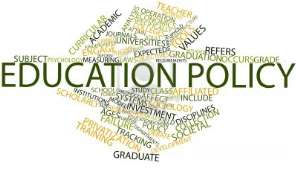
Educational policy is an interdisciplinary science that connects theory and practice to solve important educational and social problems. Educational policy practitioners examine education and policy from a variety of competing perspectives within and among research methodology, leadership, the social sciences, and the humanities.
The mission of the educational policy studies programs at most Colleges and Universities is to develop critical policymakers and scholars who demonstrate excellence in leading educational institutions, implementing and analyzing policy, and enacting social justice.
The purpose of training in educational policy studies is to prepare scholars to understand educational systems and policies and use this knowledge to shape the education landscape where they practice. Educational Policy practitioners seek to address multiple educational problems such as how to effectively provide students with the knowledge, skills, and tools to answer difficult policy questions facing our society. For example, how do we address school bullying, cell phone use, dress codes, religion and prayers in school, curriculum standards, teaching methods, teacher quality, school infrastructure, school feeding, school health, mental and psychological health and many more.
Education policy practitioners are trained critically to reflect on issues affecting education and society and to propose workable solutions for all. Thus, a practitioner is one who must respond critically and effectively to the myriad of problems facing our educational system today.
The learning objectives for the education policy programs at most colleges of education coalesce around the following cardinal objectives:
- An examination of the policy processes and their consequences.
- An examination of ethnicity, gender, regionality as they apply to their educational setting.
- An examination of the political context in which educators work and how these relationships promotes or impedes their work.
- Train critical leaders, policymakers, and scholars in the field.
- Applying theory to practice in educational policy.
- Developing skills to examine the relationship of society and education through a variety of theoretical perspectives and empirical studies.
An examination of recent developments in our educational system for example textbooks, curriculum development, education standards, teacher training and quality, dress codes, diversity education, sexuality education and other complex educational problems suggest to me that these discussions must not take place in the media alone. Instead, educational policy practitioners must be engaged to assist in finding lasting workable solutions to benefit our learners and the future generations. Let us always remember that “A stitch in time saves nine”.
Dr. Augustine M. Amenyah




 TUC tells informal sector employers to pay their employees the minimum wage
TUC tells informal sector employers to pay their employees the minimum wage
 Prof. Marfo urges good civilian-security relations to promote peace
Prof. Marfo urges good civilian-security relations to promote peace
 I was nearly jailed because of NPP; I’m still ‘pained’ — Hopeson Adorye
I was nearly jailed because of NPP; I’m still ‘pained’ — Hopeson Adorye
 Rising against NPP after being a minister for 15 years is a sin; God will judge ...
Rising against NPP after being a minister for 15 years is a sin; God will judge ...
 Cecilia Dapaah: Reasons behind AG’s advice to EOCO not grounded in law – Martin ...
Cecilia Dapaah: Reasons behind AG’s advice to EOCO not grounded in law – Martin ...
 NPP should have reported Kingsley Nyarko’s conduct to police – Inusah Fuseini
NPP should have reported Kingsley Nyarko’s conduct to police – Inusah Fuseini
 Akufo-Addo cuts sod for MIIF Technical Training Centre
Akufo-Addo cuts sod for MIIF Technical Training Centre
 NPP didn’t struggle to win Ejisu by-election – Samuel Ayeh-Paye
NPP didn’t struggle to win Ejisu by-election – Samuel Ayeh-Paye
 A/R: Achiase Chief arrested for acid attack on community members
A/R: Achiase Chief arrested for acid attack on community members
 Naa Ayemoede returns to school
Naa Ayemoede returns to school
